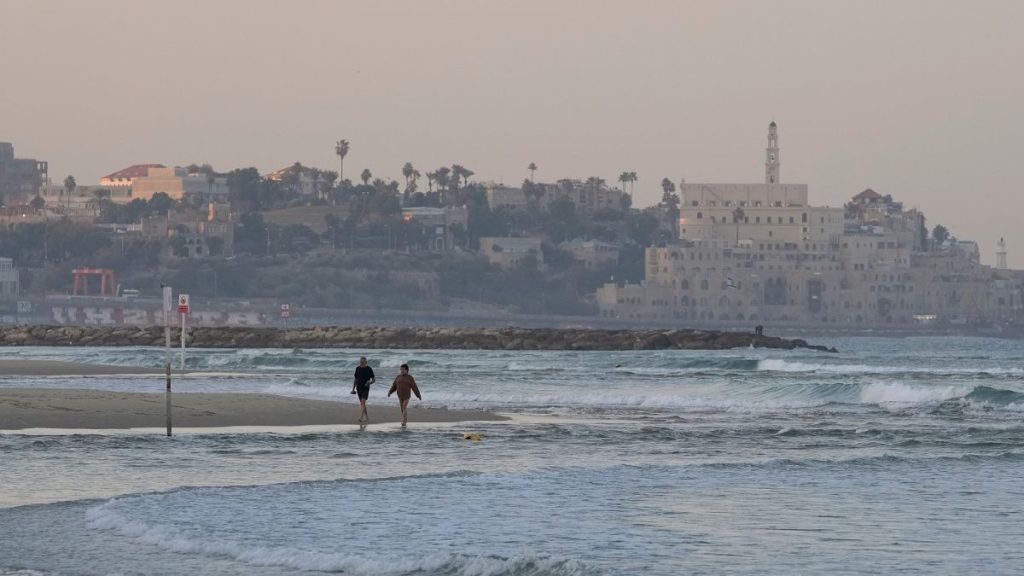The geopolitical landscape in the Middle East has experienced significant shifts, impacting travel advisories and safety concerns for tourists and visitors. After 15 months of restrictions, travel advisories imposed in October 2023 for much of Israel have been lifted. The UK Foreign Office (FCDO) revised its guidance, removing warnings against all or all but essential travel to popular destinations such as Tel Aviv, Jerusalem, Eilat, the Dead Sea, Galilee, and Haifa. While encouraging visitors to check current advisories before embarking on their journeys, the FCDO acknowledges the decreased frequency of rocket attacks. However, it cautions against heightened political tensions, which may lead to demonstrations and clashes, particularly around anniversaries of significant events. The state of emergency declared by the Israeli government in October 2023 remains in place, underscoring the potential for rapid changes in border control and travel restrictions, and highlighting the importance of staying informed about the latest developments.
While Israel sees easing travel restrictions, neighboring countries present a more complex picture. Concerns remain regarding safety and security in regions impacted by ongoing conflicts and political instability. The FCDO advises against travel to various areas in Egypt, particularly those bordering Libya and within the North Sinai Governorate. Caution is also advised for parts of the South Sinai Governorate, excluding coastal areas, and for the Ismailiyah Governorate east of the Suez Canal. Specific areas within the Nile Valley and Nile Delta regions are also subject to travel restrictions, excluding tourist hotspots like Luxor, Aswan, Abu Simbel, and the Valley of the Kings, as well as the Faiyum Governorate and certain coastal stretches. Similarly, travel to areas west of the Nile Valley and Nile Delta regions is discouraged, except for designated safe zones. The FCDO’s nuanced approach highlights the need for careful consideration of specific locations within Egypt before planning any travel.
Lebanon, bordering Israel to the north, faces a volatile security situation despite a recent ceasefire between Israel and Lebanese Hizballah. The FCDO advises against all travel to Lebanon and urges British nationals to depart via commercial means, reflecting the unpredictable nature of the security environment. This assessment aligns with advisories issued by other European countries, including Ireland and France, further emphasizing the potential risks associated with travel to Lebanon.
Syria, another neighbor grappling with ongoing conflict, is subject to the strongest travel advisory. The FCDO advises against all travel to Syria due to the pervasive conflict and unpredictable security conditions, urging all British nationals to leave by any available means. The recent fall of the Assad regime after a 50-year reign further underscores the volatile political climate and the significant risks associated with travel to the country.
Jordan, sharing borders with Israel, the West Bank, and Syria, presents a mixed situation. While the FCDO advises against travel within 3km of the Syrian border, the majority of tourist destinations within Jordan remain largely unaffected by regional instability. However, the potential impact on flights to Amman and Aqaba airports warrants checking for disruptions before traveling.
These varied advisories highlight the dynamic and often unpredictable nature of the security situation in the Middle East. Travelers are strongly encouraged to consult the latest official guidance from their respective governments, including specific regional advisories, before making travel plans. The FCDO’s detailed assessments offer a valuable resource for navigating the complex landscape and making informed decisions about travel to the region. Staying abreast of developments and exercising caution is paramount for ensuring safe and secure travel experiences in these often volatile areas. The situation necessitates a vigilant and informed approach to travel planning, prioritizing safety and security in the face of evolving geopolitical dynamics.
The lifting of travel restrictions for Israel signals a potential shift in regional dynamics, offering renewed opportunities for tourism and travel. However, the ongoing concerns surrounding neighboring countries underscore the need for continued caution and vigilance. The complex interplay of political tensions, security risks, and ongoing conflicts necessitates careful consideration of travel plans. By adhering to official advisories and staying informed about the latest developments, travelers can mitigate risks and navigate the complexities of the region, ensuring safer and more secure journeys.
The fluctuating security situation in the Middle East requires a dynamic approach to travel planning. Travelers must stay abreast of changing advisories, political developments, and security assessments. The FCDO’s detailed guidance offers valuable insights into the specific risks and challenges associated with travel to different regions within the Middle East. By utilizing these resources and exercising informed judgment, travelers can make better-informed decisions, minimizing potential risks and maximizing their chances of safe and enjoyable travel experiences.
The intricacies of the geopolitical landscape in the Middle East underscore the importance of responsible travel planning. Beyond consulting official advisories, travelers should also consider the ethical implications of their travel choices. Supporting local communities, respecting cultural sensitivities, and minimizing environmental impact are crucial aspects of responsible travel. By combining informed decision-making with ethical considerations, travelers can contribute positively to the regions they visit while ensuring their own safety and security.
The lifting of travel restrictions for Israel presents a positive step towards normalization and renewed tourism. However, the ongoing challenges in neighboring countries highlight the fragility of peace and stability in the region. By remaining informed, adaptable, and ethically conscious, travelers can navigate the complexities of the Middle East, contributing to positive cross-cultural exchange while prioritizing safety and responsible travel practices.
Finally, the dynamic nature of the region necessitates continuous monitoring of the situation and a willingness to adapt travel plans as needed. Flexibility and preparedness are key to navigating the evolving security landscape and ensuring a safe and rewarding travel experience. By embracing a responsible and informed approach, travelers can contribute to a deeper understanding of the region’s rich cultural heritage while minimizing potential risks and maximizing the positive impact of their travels.














